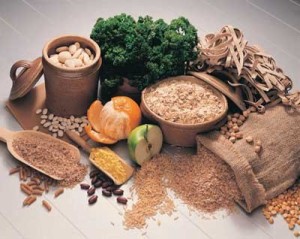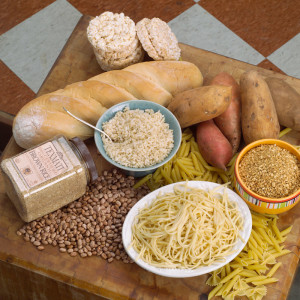Slow Digesting Carbs: What is It and Why is It Important?
 Slow digesting carbs are simply defined as carbohydrates that take longer for the body to digest and turn into sugar. When you take in carbohydrates from your food, like breads or potatoes, your body will digest it and turn it into sugar. This sugar will give energy to your cells and consequently to your body. It is the fuel that drives the body to do its functions. However, when you eat too much carbohydrates yet fail to convert it to energy, it will then be stored in your body and eventually turn into fat reserves. That is when you experience weight gain.
Slow digesting carbs are simply defined as carbohydrates that take longer for the body to digest and turn into sugar. When you take in carbohydrates from your food, like breads or potatoes, your body will digest it and turn it into sugar. This sugar will give energy to your cells and consequently to your body. It is the fuel that drives the body to do its functions. However, when you eat too much carbohydrates yet fail to convert it to energy, it will then be stored in your body and eventually turn into fat reserves. That is when you experience weight gain.
Carbohydrates are made up of carbon chains. When you look at it in the molecular level, some have simple chains and others have complex chains. The simpler the chains, the easier it is for the body to break and turn into sugar molecules. The opposite happens with complex chains, which is why slow digesting carbohydrates are also referred to as complex carbohydrates.
Understanding Glycemic Index and Glycemic Load
Since slow burning carbs are discussed, it is natural to dip into the topic of glycemic index and glycemic load. The glycemic index refers to how fast the carbohydrates in the food you eat can elevate your blood sugar levels. Fast digesting carbohydrates, therefore, have a high glycemic index (GI) while slow burning carbs have a low GI. The glycemic load, on the other hand, refers to how much digestible carbohydrates are in your food. It includes both slow and fast digesting carbs. Therefore, if a dietitian says that a certain food has a high glycemic load and a high GI, then you can expect that eating that food often can result to elevated blood sugar levels that happen frequently and can eventually interfere with your normal metabolism, hormone levels, and even make you gain weight. This topic is very important especially if you have diabetes or if you are prediabetic. You need to be extra careful with what you eat in order to avoid elevating your blood sugar levels.
Slow Carb and the Paleo Diet
Between the Paleo or vegan diets, the slow carb diet is more similar to the Paleo in many ways. First, they both do not include grains, sugar, and dairy. White grains, for instance, like rice and bread are fast digesting carbohydrates so they definitely are avoided. Second, both do not focus on measuring the calorie load. You do not need to count how many calories are in your plate, but rather just eat until your hunger is satisfied and only eat when you are hungry.
With regards to nuts and fruits, the Paleo diet are more lenient on these two compared to the slow carb diet. This is because nuts are calorie-dense while fruits contain natural sugars, which if taken in excess can interfere with insulin production in the body.
If there is one major difference between the two, it is the presence of legumes in the slow carb diet. This is not allowed in the Paleo diet, but the slow carb diet decided to include it in order to replace the carbohydrates in the absence of processed foods. Still, it is not advised to overstuff yourself with legumes in the slow carb diet.
Benefits of Slow Burning Carbohydrates
There are plenty of health benefits to gain by sticking to a slow carb diet. First, you can lower your risk of having  diabetes. Even if you already are suffering from the illness, you can still better manage it if you watch what you eat and that can make you lessen your dependence on drugs.
diabetes. Even if you already are suffering from the illness, you can still better manage it if you watch what you eat and that can make you lessen your dependence on drugs.
Second, it can help you lose weight. Too much sugar that is not converted to energy eventually gets stored in the body and turns to fat. This is why, if you have noticed, eating too much rice, white bread, and pasta can easily make you gain weight, especially if you are not physically active. A slow carb diet also makes you feel fuller longer, hence supporting weight loss further.
Finally, a slow carb diet can provide your body with more energy for sustained amount of time. This is very ideal for active people who cannot allow “sugar crashes” to zap their energies away.
Slow Digesting Carbs List
Most vegetables have low GI ratings. That will include spinach, broccoli, cabbage, carrots, celery, and alfalfa sprouts, among others. Fruits, on the other hand, contain more natural sugars, but some of them are still considered as complex carbs, like avocado, apple, cranberries, and peaches. Beans are slow digesting carbs too, such as lentils, soybeans, and kidney beans.
Now that you know what slow digesting carbs are and their significance in your health, it is worth considering when you are choosing an ideal diet for you. Basically, it is similar to Paleo just with the addition of legumes, which you can still choose not to include as long as you are getting enough carbohydrates from your vegetables. All of these may seem complex to you at the moment but getting into it and learning more as you go along can eventually make you an expert and give you more control over your health.


